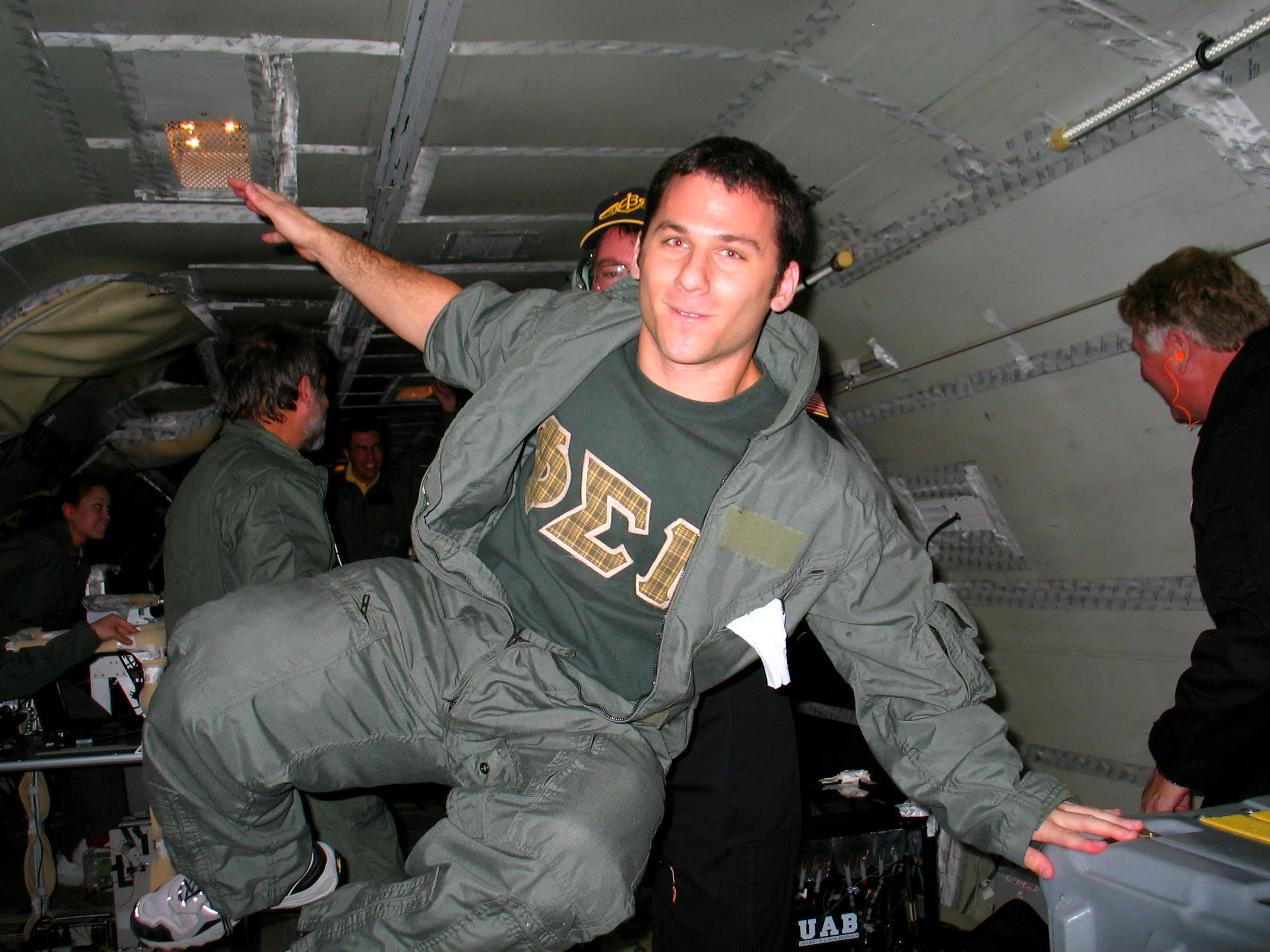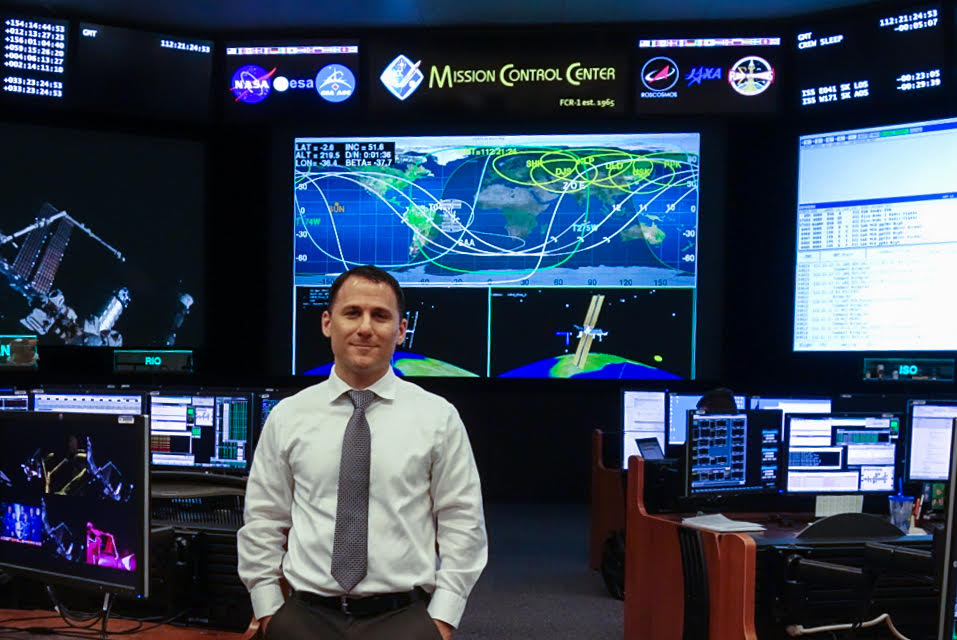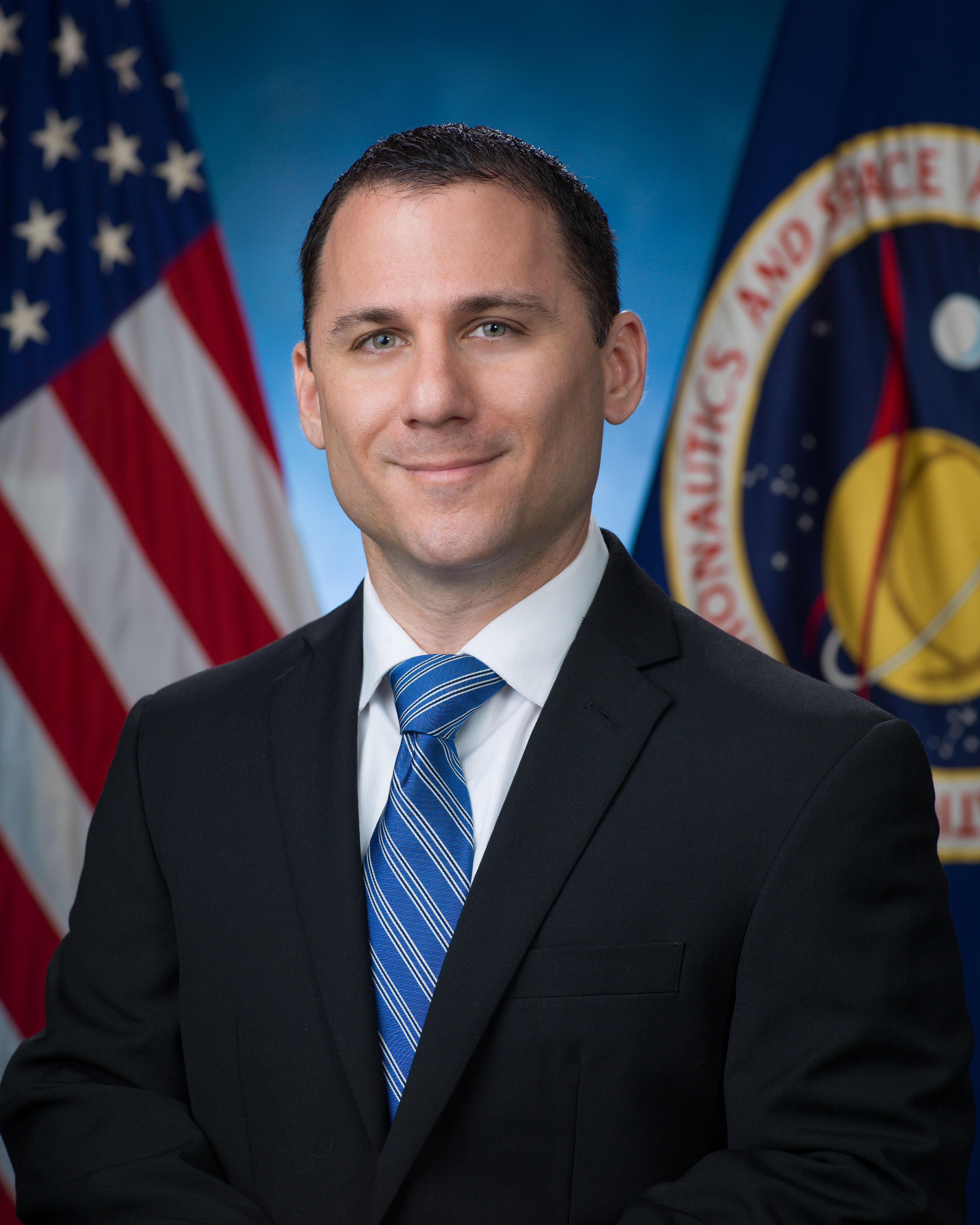Have you ever wondered what it’s like to be in space? What kind of effect that would have on your body? David Rubin (Alpha Eta Chapter ‘99) has. In fact, as a Medical Technologies Project Manager contracted by NASA, he’s spent years working with talented engineers, scientists, physicians and other specialists to develop products that address the types of medical issues that astronauts may experience during their missions to the moon and to Mars.
“When we get sick here on Earth, we have easy access to doctors, medical facilities and medication,” Rubin explains. “Our astronauts in space do not have that luxury.” A typical trip to the moon could take one to two weeks. While the risk of a crew member getting sick or injured during that time is low, Rubin and his team need to be prepared to provide medical care so that the mission isn’t forced to end early.
There are a lot of unknowns when it comes to spaceflight and this is what Rubin states as the most challenging part of his job. “We just haven’t had a lot of people in space yet. So, while we have an idea of what effects spaceflight has on the human body, we do not have as much data as we’d like to support those ideas,” says Rubin. “Humans are messy. We are not predictable in the same way that a mechanical system or a computer might be. As a result, there is only so much we can predict and prepare for. And, for the rest, we need to rely on ingenuity to see us through the problem.”

Rubin works with a lot of talented people to predict what health issues can arise, what they can do to prevent them and what equipment they can provide the astronauts to deal with those issues if they arise. Luckily, they have yet to experience a significant medical event in space, but the challenge for Rubin and his team is to make sure that when a situation does occur, the astronauts are prepared to handle it.
Many dream of exploring space as an astronaut in their youth. That was never really Rubin’s dream. In fact, it was never really his intent to work for NASA at all. Rubin graduated with a mechanical engineering degree from the University of Delaware where he joined Phi Sigma Pi in his Sophomore year, which he calls “easily the best decision I made in college.” After graduation he just couldn’t find a job that interested him, so he decided to go to graduate school. “Two of my favorite courses at the University of Delaware were in the field of biomechanics so I made the decision to pursue biomedical engineering at Boston University,” says Rubin. “I just loved the idea of working at the intersection of biology and engineering.”
Rubin earned his Master’s Degree and it was time to start the career search again. It just so happened that Wyle (now KBRwyle, the global government services business of KBR) was conducting interviews at the university and Rubin ended up talking to them about a position in Houston at the Johnson Space Center. “While moving to Texas was never on my radar,” says Rubin, “the idea of working with NASA had a lot of appeal. The only catch was that the company was looking for someone to be a Biomedical Flight Controller for the International Space Station, which meant that I would not directly use my engineering degrees.” While that was a bit of a setback for Rubin, after visiting the space center and seeing all of the full-scale replicas of the Space Shuttle and International Space Station, he knew that was where he wanted to be. “Think of it as Disneyworld for engineers,” says Rubin.

What really connects Rubin to his career is the opportunity to improve humanity. “The most rewarding part about the job is knowing that what I do is helping humankind explore space,” he says. Sending people into space is an ongoing effort, with sights set on further and longer explorations, and Rubin is excited to continue to support the nation’s space program, ensuring that there is always an emphasis on the “human” part of “human spaceflight.”
Rubin recounts one really cool moment when he was selected to be part of a small team to respond to an astronaut’s request aboard the Space Station. At the time, he was working as a NASA Flight Controller and it was around Thanksgiving when a lot of people where out of the office, making it a particularly challenging task. Rubin and the team were able to make everything work. When he returned to the office from the holidays, he had a voicemail on his phone; It was from the astronaut, thanking him and his coworkers for accommodating his request and expressing how much it meant to him. About a week later, he received another voicemail from the same astronaut wishing him a happy birthday.
“Apart from the sheer coolness of receiving a voicemail from space, his gestures carried great significance,” says Rubin. “Our astronauts are incredible people doing incredible work in a very dangerous environment and it is easy to put them up on a pedestal. However, these two voicemails were a great reminder that they are still human and acutely aware of, and grateful for, the thousands of people required to ensure that their missions are successful and safe.”

Ever thought about a career with NASA? Now is a great time to pursue it! “The world is on the cusp of spaceflight revolution,” shares Rubin. “The dream of expanding access to space for all people, not just highly trained astronauts, is quickly becoming a reality. To get us there, though, NASA and the commercial industry companies working to make spaceflight to low Earth orbit more affordable need the best and brightest people working for them, and that includes more than just engineers and scientists. Just about every educational discipline has a role to play in the space industry and I encourage all Phi Sigma Pi Alumni who are interested in spaceflight to explore how they can get involved.”
Do you have a cool story to tell or know someone who does? Submit it here!
